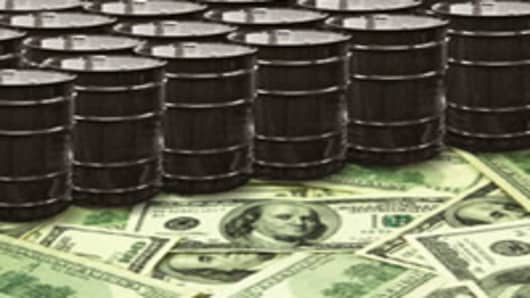"Oil engineers are applying what critics say is an environmentally questionable method developed in recent years to tap natural gas trapped in underground shale. They drill down and horizontally into the rock, then pump water, sand and chemicals into the hole to crack the shale and allow gas to flow up."
Nonetheless, the search for additional supply inexorably drives the process forward:
"Because oil molecules are sticky and larger than gas molecules, engineers thought the process wouldn't work to squeeze oil out fast enough to make it economical. But drillers learned how to increase the number of cracks in the rock and use different chemicals to free up oil at low cost. 'We've completely transformed the natural gas industry, and I wouldn't be surprised if we transform the oil business in the next few years too,' says Aubrey McClendon, chief executive of Chesapeake Energy, which is using the technique."
Yesterday, with peak oil fears roiling nerves, I wrote a piece called "Don't Panic: The World Won't Run Out of Oil Before the Weekend"
The basic point was this: The peak oil theory has been around since 1956—and the world hasn't come to a grinding halt yet—so perhaps a deep breath is in order.
More specifically, I wrote about how market forces drive new oil development—about how reserves that were previously infeasible to access can later come online:
"And recoverable reserves are based on the economic feasibility of extraction. Which means that the supply curve builds in a self-correcting mechanism: when prices rise it becomes economically feasible to go after oil that is more expensive to recover. And new technology is-and will continue in the future-to increase our ability to extract oil in more cost effective ways."
(Sometimes, the Gods of the news cycle smile on you.)
Prepare for the debate: Tolerating "environmentally questionable" extraction techniques—or the benefits of increased energy independence.
Anyone care to wager now on which position the smart money will take?
_________________________________________
Questions? Comments? Email us atNetNet@cnbc.com
Follow NetNet on Twitter @ twitter.com/CNBCnetnet
Facebook us @ www.facebook.com/NetNetCNBC


